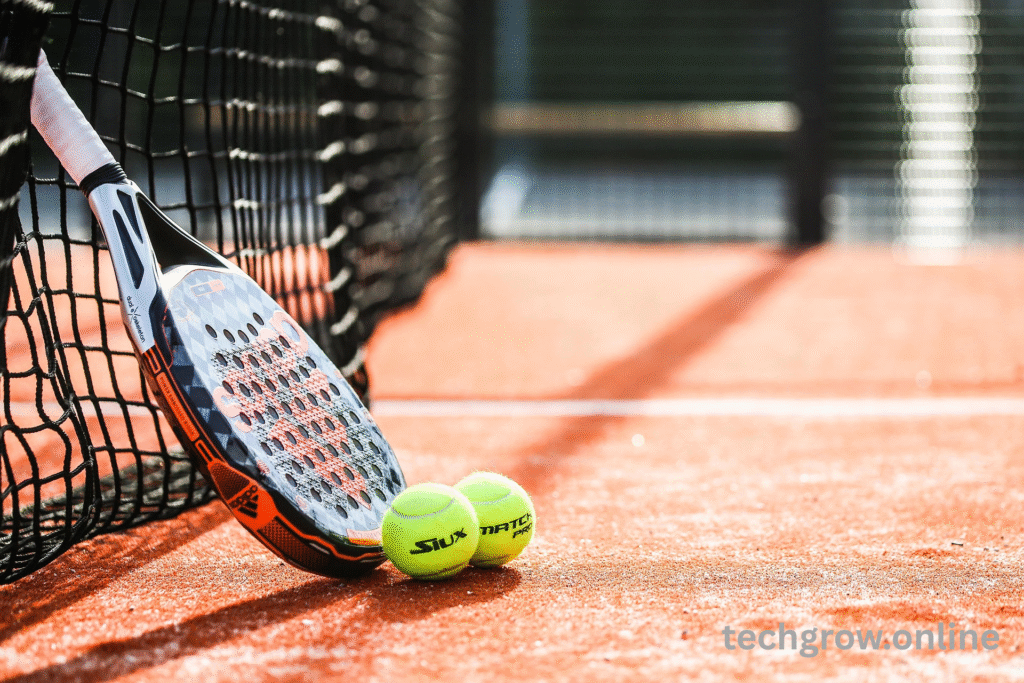Introduction to Sports Technology Labs
In today’s era of sports, technology is crucial for improving performance, safety, and entertainment. Central to this revolution are sports technology labs, specialized research and development facilities that propel advances in athletic training, wearable technology, data analysis, injury prevention, and fan engagement. As athletes, teams, and organizations look for a competitive advantage, sports technology labs provide the tools and information to move human performance to new limits.
Whether part of a university, a professional sports franchise, or an independent company, these labs are shaping the future of sports. This article explores the impact, advancements, and applications of sports technology labs across the global sports ecosystem.

What Are Sports Technology Labs?
Sports tech labs are dedicated centers for using science, engineering, and innovation to enhance all aspects of sport. Sports scientists, engineers, data analysts, biomechanists, and software developers come together in these labs to investigate, try out, and create new technologies.
Main Areas of Activity Normally Include:
-
Wearable sensor and smart clothing
-
Motion capture and biomechanics analysis
-
Performance analysis and AI-based insights
-
Injury prevention and rehabilitation technologies
-
Virtual and augmented reality training
-
Environmental monitoring and gear design
From elite training facilities to university research laboratories, these environments provide real-world solutions for cutting-edge technology.
Major Functions of Sports Technology Labs
1. Performance Enhancement
Improving athletic performance is one of the main objectives of sports technology labs. Through the examination of biomechanics, movement efficiency, muscle fatigue, and cardiovascular parameters, labs enable athletes to train better and heal quicker.
Technologies such as:
-
GPS tracking devices to track distance and speed
-
Heart rate variability monitors
-
Real-time motion capture systems
…supply trainers and coaches with information to adjust workouts to avoid overtraining.
2. Prevention and Recovery of Injuries
Injuries can end careers and cost teams millions. Predictive analytics and diagnostic tests in sports technology labs prevent injuries from happening in the first place. Smart insoles, pressure mapping systems, and joint load sensors monitor for early symptoms of stress or imbalance.
In addition, numerous labs collaborate with physical therapists to pilot-test rehabilitation technology, including:
-
Electrical stimulation devices
-
Cryotherapy equipment
-
Robotic exoskeletons
These instruments facilitate quicker and more efficient recoveries.
3. Innovation in Equipment and Apparel
Laboratories partner with sportswear companies to design high-performance equipment. This encompasses:
-
Moisture-wicking, breathable fabric
-
Forced plate-tested shoes
-
Concussion-detecting smart helmets
-
Custom 3D-printed equipment for athletes
With the utilization of wind tunnels, pressure chambers, and material testing equipment, laboratories optimize equipment for optimum comfort, speed, and protection.
4. Data Analytics and Artificial Intelligence
Most sports technology labs are on the leading edge of sports analytics. They examine huge volumes of game, training session, and social media data to:
-
Scout talent
-
Predict outcomes
-
Optimize lineups
-
Assess performance trends
AI-enabled platforms deliver customized training programs and real-time feedback that were once out of the question.
Top Sports Technology Labs Around the World
1. Catapult Sports Lab (Australia/Global)
Catapult is one of the pioneers in sports analytics and wearable technology. Their laboratories create products that are worn by more than 3,000 teams across the world, from the NFL to the English Premier League.
2. Nike Sport Research Lab (NSRL)
NSRL is located at Nike’s global headquarters in Oregon and is an advanced research lab focused on biomechanics, physiology, and product innovation. Many innovations, including the Nike Vaporfly and smart fabrics, find their origins here.
3. Adidas Future Lab
Adidas’s innovation lab is dedicated to designing next-generation apparel and footwear. Employing 4D printing, AI simulations, and input from athletes, the lab comes up with products that optimize sports performance.
4. STATS Perform Innovation Lab
Stat’s Perform is a sports data analytics leader with labs that design AI models for predictive sports intelligence. They are utilized by broadcasters, teams, and fantasy leagues across the globe.
5. University-Based Labs
Universities like Loughborough University (UK), MIT (USA), and ETH Zurich (Switzerland) have sports technology labs that collaborate with Olympic teams, clubs, and companies to establish new tools and frameworks.
Sports Technology Labs and Wearable Innovation
Wearables are a flagship innovation of sports technology labs. Smart devices have been invented by these labs that athletes wear while training and competing in order to gather critical data.
Examples Include:
-
Smartwatches and rings that monitor sleep, hydration, and HRV
-
Compression wear with sensors that track muscle use
-
Mouthguards that detect concussions
These innovations offer greater insight than ever before into an athlete’s health and readiness, enabling personalized training and recovery protocols.
The Role of Sports Technology Labs in Esports
As competitive gaming has grown, so too has the sport of esports incorporated sports technology labs into their focus. Lab work aims to enhance cognitive function, reaction time, ergonomics, and mental well-being for gamers.
Applications:
-
Eye-tracking software
-
Monitoring of cognitive fatigue
-
VR training spaces
-
Gaming chairs with posture enhancement
Esports competitors today are subjected to the same intense performance analysis as conventional athletes due to these developments.
Sports Technology Laboratories and Intelligent Stadiums
Numerous sports tech labs collaborate with arena designers to design intelligent stadiums that support fan engagement and operational effectiveness. Tested technologies in such laboratories involve:
-
Facial recognition for access and safety
-
Overlays of augmented reality for spectators
-
Player statistics in the form of real-time data on mobile platforms
-
Sensors for crowds and temperature
These technologies not only enhance fan experience but also enhance safety and sustainability.
Partnerships Between Professional Teams and Sports Tech Labs
High-profile teams such as FC Barcelona, the Golden State Warriors, and the New England Patriots have collaborated with sports tech labs to stay competitive. These partnerships typically involve:
-
Tailored player performance platforms
-
Tailored injury prediction models
-
High-performance data visualization dashboards
These collaborations enable teams to be ahead of the curve as well as manage player development and tactics more effectively.
Advantages of Sports Technology Labs
-
Decisions Based on Data: Labs enable players and coaches to make sound decisions on training, recovery, and competition.
-
Lower Risk of Injury: Advanced tracking lowers injury risk and prolongs athlete careers.
-
Improved Fan Experience: From intelligent jerseys to real-time data streams, fans are connected in new ways.
-
Sustainability: New designs and materials minimize environmental footprint throughout sports equipment.
-
Cross-Disciplinary Learning: Sports science is frequently combined with medicine, engineering, and artificial intelligence in these labs.
Challenges Confronting Sports Technology Labs
Although sports technology labs are valuable, they have several challenges:
-
Data Privacy: Processing and protecting personal athlete information is of major concern.
-
Cost Barriers: Low-budget clubs and schools might not be able to afford expensive technologies.
-
Integration Complexity: It takes profound technical expertise to integrate tools and analytics into coherent systems.
-
Regulatory Challenges: Emerging technologies are likely to be banned or limited in official competitions if they constitute unfair advantages.
The Future of Sports Technology Labs
Sports technology labs’ development refuses to slow down. Expected trends include:
-
AI Coaching Assistants: Coaches that learn in real-time based on player performance
-
Neurotech Wearables: Wearables that monitor brain activity to improve concentration and decision-making
-
Blockchain for Player Data: Storing securely and authenticating player statistics, contracts, and health records
-
Personalized Genetic Training Programs: Employing DNA testing to customize exercise routines
So long as sport requires enhanced performance, accelerated recovery, and more intelligent decisions, sports technology labs will be at the forefront of innovation.
Conclusion
In the competitive world of sports today, staying ahead is all about adopting science and innovation. Sports technology labs fill the gap between potential and performance. With wearable tech to AI analytics, these labs offer athletes and organizations the means to thrive in a fast-paced, high-stakes game.
Whether you’re a pro athlete, coach, sports brand, or a sports fan, it’s hard to deny the impact of sports tech labs. As the market keeps expanding, the labs will become ever more pivotal in transforming the way we train, play, recover, and engage in sport.
